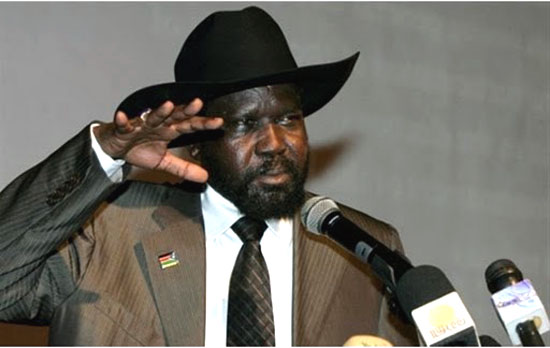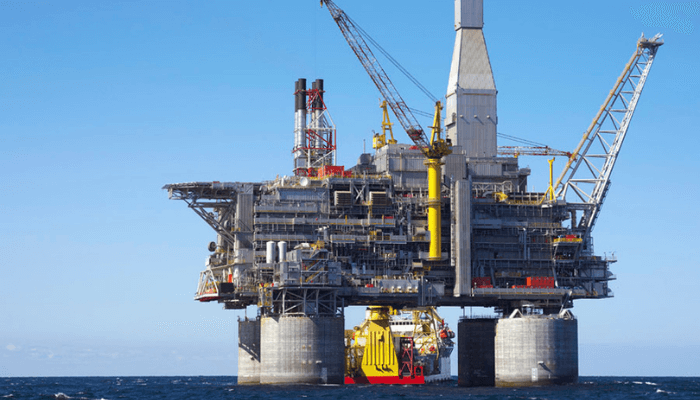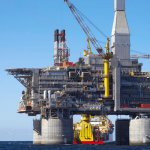Economy
S/Sudan President To Speak At Africa Oil & Power 2017


president salva kiir
By Dipo Olowookere
South Sudan President, Mr Salva Kiir Mayardit, will present opening speech on June 5, 2017 in Cape Town, organisers of the event have said.
This followed decision of the crisis-ridden country and Africa Oil & Power to work in partnership on a slew of initiatives to promote foreign direct investment in the East African country.
Mr Mayardit is expected to present a keynote address at the conference, which will also host a special Market Spotlight session on South Sudan to feature Minister of Petroleum, Mr Ezekiel Lol Gatkuoth alongside key industry leadership to discuss developments in the industry.
South Sudan has adopted a strongly pro-business attitude with the hope that expansions in the petroleum sector and heightened exploration activity will stimulate its economy.
Once one of sub-Saharan Africa’s mightiest hydrocarbon economies, South Sudan has seen oil production decline since the country has grappled with civil conflicts with a rebel faction.
South Sudan currently produces 130,000 barrels per day but is capable of daily output of 500,000 barrels.
The Ministry of Petroleum has been undergoing some important negotiations with oil companies to enter the market and has previously considered launching its first licensing round.
The Market Spotlight session on South Sudan will gather the industry’s key participants to discuss developments in the sector, including exploration activity, production outlooks, energy security, corporate finance, downstream and export infrastructure. Africa Oil & Power will produce a range of resources for the South Sudanese government to promote its activities.
“We are truly honored that the Government of South Sudan has agreed to participate in Africa Oil & Power,” said Guillaume Doane, CEO of Africa Oil & Power. “South Sudan has a proud legacy in the petroleum sector and has shown a huge willingness to attract companies to the country and develop its abundance of hydrocarbons. The country recognizes that unlocking those natural resources is vital to fostering economic growth, restoring peace and stability and we hope to be useful in those efforts.”
“South Sudan is truly honored to participate in Africa’s premier energy industry event,” said Ezekiel Lol Gatkuoth, Minister of Petroleum for South Sudan. “Our country strives to restore its rightful place in Africa’s hydrocarbons sector and we see this an opportunity for our head of state H.E. General Salva Kiir Mayardit to outline our vision for the industry and attract investors to South Sudan.”
The participation of the South Sudan government follows the commitment of several high-level government to Africa Oil & Power 2017, including: Patrice Trovoada, Prime Minister of São Tomé and Principe; and Francisco Pascual Obama Asue, Prime Minister of Equatorial Guinea; Gabriel Mbaga Obiang Lima, Minister of Mines and Hydrocarbons of Equatorial Guinea; and Tina Joemat-Pettersson, Minister of Energy for South Africa.
Economy
Subscription for FGN Savings Bonds Opens for March 2026 at 13.9%

By Aduragbemi Omiyale
The Debt Management Office (DMO) has asked retail investors interested in investing in the FGN savings bonds to begin to talk to their financial advisers.
This is because subscription for the retail bonds for March 2026 has commenced and will close on Friday, March 6, according to a circular issued by the agency on Monday.
The debt office is selling two tenors of the debt instrument, with the shorter note maturing in two years’ time and the longer maturing a year later.
Details of the notice showed that the two-year paper is being offered at a coupon of 12.906 per cent, and the three-year paper at 13.906 per cent.
Both notes are sold at a unit price of N1,000, with a minimum subscription of N5,000 and in multiples of N1,000 thereafter, subject to a maximum subscription of N50 million. They can be purchased via approved stockbroking firms in Nigeria.
The FGN savings bond qualifies as a security in which trustees may invest under the Trustee Investment Act. It also serves as government securities within the meaning of the Company Income Tax Act (CITA) and the Personal Income Tax Act (PITA) for tax exemption for pension funds, amongst other investors.
It can be used as a liquid asset for liquidity ratio calculation for banks, and is listed on the Nigerian Exchange (NGX) Limited for trading at the secondary market.
The bond is backed by the full faith and credit of the Federal Government of Nigeria (FGN) and charged upon the general assets of the country.
Economy
Nigeria Splits OPL 245 into Four Blocks for Eni, Shell

By Adedapo Adesanya
Nigeria has broken up the OPL 245 oil block into four new assets to be operated by Eni and Shell, potentially settling the future of the field at the centre of one of the oil industry’s biggest historic corruption trials.
According to Reuters, the agreement clears the way for the development of OPL 245, one of Nigeria’s biggest deepwater reserves that has remained untapped for almost three decades amid overlapping lawsuits in multiple countries.
The final contracts are expected to be signed starting Monday, the report said, citing a source familiar with the situation.
The Nigerian government had signalled for years that it was keen to find a solution that would bring the block into production. The source wished to remain anonymous as they are not authorised to comment on government policy before an official announcement.
Located in the Niger Delta’s deepwaters, the field has languished since its initial award in 1998 to Malabu Oil and Gas, a shadowy firm controlled by Mr Dan Etete, Nigeria’s oil minister at the time. The block is estimated to hold up to 9 billion barrels of oil equivalent in reserves—enough to rival Nigeria’s entire proven reserves if fully developed.
Mr Etete controversially awarded the lucrative licence to his own company for a nominal $20 million fee, sparking immediate controversy over conflicts of interest.
The saga escalated in 2011 when Malabu sold its rights to a Shell-Eni joint venture for $1.3 billion.
Italian and Nigerian prosecutors alleged that over $1 billion of that sum was siphoned off through bribes to politicians, middlemen, and Mr Etete himself, including hefty payments to then-President Goodluck Jonathan’s associates.
The two European energy giants and some of their former and current executives, including Eni CEO, Mr Claudio Descalzi, faced trial in Italy but all were acquitted in 2021, having denied all wrongdoing.
Shell and Eni have consistently denied wrongdoing, insisting the payments complied with due diligence.
The anti-graft agency, the Economic and Financial Crimes Commission (EFCC), has pursued parallel probes, recovering over $200 million in frozen funds, but progress stalled amid political shifts.
Operations at the Nigerian oil block have been halted for more than a decade by a series of trials and competing legal claims.
In 2023, the federal government withdrew civil claims totalling $1.1 billion against Eni, ending the long battle.
Economy
Dangote Refinery, NNPC Raise Petrol Pump Price by N100

By Modupe Gbadeyanka
The price of Premium Motor Spirit (PMS), otherwise known as petrol, has been increased by at least N100 per litre at the pump.
This followed the recent increase in the price of crude oil in the global market as a result of the bombardment of Iran by the United States and Israel over the weekend.
The air strikes killed the Supreme Leader of Iran, Mr Ayatollah Ali Khamenei, and several others.
Iran has responded by firing missiles at US facilities in some Gulf countries, including Saudi Arabia, Qatar, Kuwait, Bahrain, the UAE, and others.
Crude oil prices rose to about $80 per barrel on the market from about $70 per barrel before the Middle East crisis.
Oil marketers in Nigeria have responded to the tension and have raised the prices of petroleum products.
At most MRS Oil retail stations in Lagos, the new price notice showed an increase of about N100 per litre.
As of Monday, the price of PMS was N837 per litre, but on Tuesday morning, it had changed to N938 per litre, while at NNPC retail stations, it was N930 per litre instead of the previous N830 per litre.
-

 Feature/OPED6 years ago
Feature/OPED6 years agoDavos was Different this year
-
Travel/Tourism10 years ago
Lagos Seals Western Lodge Hotel In Ikorodu
-

 Showbiz3 years ago
Showbiz3 years agoEstranged Lover Releases Videos of Empress Njamah Bathing
-

 Banking8 years ago
Banking8 years agoSort Codes of GTBank Branches in Nigeria
-

 Economy3 years ago
Economy3 years agoSubsidy Removal: CNG at N130 Per Litre Cheaper Than Petrol—IPMAN
-

 Banking3 years ago
Banking3 years agoSort Codes of UBA Branches in Nigeria
-

 Banking3 years ago
Banking3 years agoFirst Bank Announces Planned Downtime
-

 Sports3 years ago
Sports3 years agoHighest Paid Nigerian Footballer – How Much Do Nigerian Footballers Earn

















